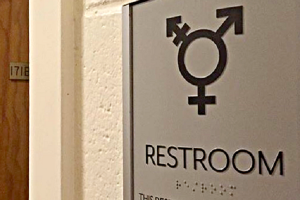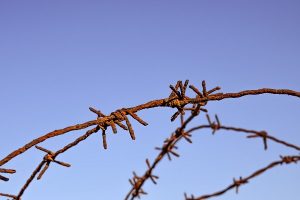By Patricia Duval attorney and a member of the Paris Bar
On 9 April 2021, the Minister of the Interior’s Delegate for Citizenship, Marlène Schiappa, gave an interview on France Info announcing a vigorous relaunch of MIVILUDES, the inter-ministerial mission for monitoring and fighting against cultic deviances[1] which now falls under the Ministry of the Interior.
After a gradual disappearance of the Mission over the past years, especially since 2015 when priority was given to counter Islamist terrorism, Marlène Schiappa has now decided to multiply its budget by ten to reach a sum of 1 million euros yearly.
The explanation she gave was that “new health gurus have appeared on the internet, with alleged miracle cures against Covid-19” and that over 500 new small groups have emerged following this trend.
Anti-cult hostilities in support of Conventional Medicine
It should be noted that unconventional therapies have been characterized as “cultic deviances” (“dérives sectaires”) and included in MIVILUDES’ targets since 1996.
As part of the fight against “cultic therapeutic deviances”, the National Council of the Medical Doctors’ Association has been invited to join the Advisory Board[2] of MIVILUDES since its creation in 2002.
In their Handbook on Health and Cultic Deviances published in 2012, MIVILUDES addressed the issue of “unconventional therapeutic practices”. [3]
According to MIVILUDES, these practices, whether done by medical doctors or non-doctors, have in common the fact that they are not “scientifically recognized by conventional medicine and therefore are not taught during health practitioners’ training.”
MIVILUDES explained that “therapeutic deviances become cultic when they try to make the patient adhere to a belief, a new way of thinking”. [4]
Therefore the criterion for being labeled “cultic” is “deviant belief”, “deviant thinking”. The Handbook cites a number of “risky situations”, such as fitness retreats or the vegetable juice cleanse of Rudolf Breuss.
In March 2004, a conference entitled “Health and Undue Cultic Influences” [5] was organized by GEMPPI,[6] an anti-cult group subsidized by the French State, in Marseille, in the South of France.
The Honorary Secretary General of the National Council of the Medical Doctors’ Association gave a speech at the conference on how they were faced with cults and their relationships with unproven medical practices.
In France, the Medical Council is assigned, by the State, the role of ‘a mission of public service’ with administrative and jurisdictional functions with regards to practicing doctors.
As such, they send substantial information to the medical doctors and health care professionals on the dangers of “deviant” practices.
With regards to healthcare professionals tempted by “esoteric medicine”, the disciplinary jurisdiction of the Medical Council can be activated when the practices of medical doctors do not conform to the Code of Medical Ethics, in particular Article 39 of the Ethical Code: “Doctors may not present any fraudulent, insufficiently proven remedy or procedure as being beneficial to the health to any patient or their family”.
Also, the Representative of the Medical Council stressed that the reprehensible activities of “cults”, whether involving a medical doctor or not, can be referred to courts, criminal and civil.
One can wonder then, why would further action be needed by the MIVILUDES and the anti-cult groups in this area.
The answer was given during the same speech. According to the Council’s representative, a study of the complaints submitted to the professional courts regarding harmful medical practices resulting from cultic deviances brings about two aspects for consideration:
- Complaints are uncommon, and rarely come from the victims themselves. More often, they arise from information brought by their families and friends.
- They are generally not specific complaints, but are often worrying because of the relatively systematic nature of harmful practices expounded in the ideology of the cultic movement concerned.
So, we can understand that followers of such practices rarely complain as they freely made the choice to follow unconventional treatments – the law of 4 March 2002 guarantees the right of patients to choose or refuse certain treatments.[7]
However, the Medical Council can investigate and take action based upon denunciations from relatives or friends who disagree with or are worried by the choice of certain therapies.
The inclusion of unconventional therapies in the anti-cult campaign and the involvement of the Medical Council in conferences where such practices are stigmatized seem then to belong more to an ideological fight rather than the defense of victims.
A new Circular to increase repression of “unproven remedies”
In order to combat “new health gurus” with “alleged miracle cures against Covid-19”, the Minister of Interior’s Delegate for Citizenship, Marlène Schiappa, issued a new Circular to all police executives on March 2nd, 2021 amplifying the French « policy to combat cultic deviances ».
It gives instructions to detect “high risk situations”, based on reports received from “persons linked to persons subjected to the undue influence of cultic groups, or in the process of being so, who might be worried and report their concerns: family, neighbors, friends, teachers or colleagues, health professionals, social, cultural, sports or leisure workers, etc.”
The purpose of « reporting » on someone is, according to the Minister, to “ensure, if needed his/her protection and that of society”. She states that “the rules of professional secrecy are not systematically incompatible with the reporting of an identified problematic situation”.
The Minister apparently considers that health professionals can be exempt from the rules of professional secrecy and make such denouncements, even though violation of professional secrecy is liable to criminal sanctions.
According to her, the policy based on denunciations is part of the “fight against all forms of separatism”.
Cultic deviances are then considered as dangerous as other forms of separatism, such as violent Islamic extremism, that the new law currently going through the legislative process is intended to counter.
This is why she recommends applying Article 212-1 of the Internal Security Code which allows the dissolution of combat groups and private militias by the Executive.
The Circular also gives instructions to systematically refer to the Prosecutors reported cases of « mere suspicion of deviant practices ».
It recommends using MIVILUDES’ files (consisting of denunciations and derogatory press articles) to « enrich the reports sent to the judicial authorities ».
Not only does this interference of the Executive (MIVILUDES) in the Judiciary infringe fundamental rights, but the instruction to prosecute “mere suspicions” of “deviant practices” is a serious problem due to the vagueness and the arbitrary nature introduced by this notion.
A cultic deviance is defined in the Circular as an undertaking to undermine one’s freedom of thought, opinion or religion which infringes public order, laws and regulations, fundamental rights, security or integrity of the individual.
It is characterized by the implementation by an organized group or a single individual, whatever their nature or activity, of pressures or techniques designed at creating, maintaining or exploiting a state of psychological or physical subjection by depriving the individuals of part of their free will, with prejudicial consequences for them, their relatives or society.
So “health gurus” can be accused of creating a state of psychological subjugation and depriving their followers of their free will when they promote non-conventional treatment of Covid-19.
An easy way of getting around free choice of treatment
The concept of loss of free will for adults with full mental capacity who simply make the choice to use remedies that are “not politically correct” contradicts the basic fundaments of civil law. It amounts to an invalidation of freely made choice in health matters.
It seems then that the “cultic” label is nothing more than a backhand way of discrediting unwelcome (by the State) alternative health solutions proposed by some health practitioners accusing them of exerting “undue influence” on the public.
France has adopted the 2002 law to guarantee the rights of patients and especially the freedom of choice of their treatment.
To label “cultic” the treatments unwanted by the French authorities so that their authors get prosecuted even in the absence of complainants seems nothing more than a way to circumvent patients’ free choice in these matters.
The resurgence of the anti-cult hostilities against “health gurus” who propose “miracle remedies” for Covid-19 appears to be more a political move at a time when the government choices about handling the pandemic are subject to a major controversy.
Patricia Duval is an attorney and a member of the Paris Bar. She has a degree in public law from La Sorbonne University, and specializes in international human rights law. She has defended the rights of minorities of religion or belief in domestic and international for a, and before international institutions such as the European Court of Human Rights, the Council of Europe, the Organization for Security and Co-operation in Europe, the European Union, and the United Nations. She has also published numerous scholarly articles on freedom of religion or belief.
[1] Mission interministérielle de vigilance et de lutter contre les dérives sectaires.
[2] Conseil d’orientation.
[3] Pratiques non conventionnelles à visée thérapeutique (PNCAVT).
[4] « La dérive thérapeutique devient sectaire lorsqu’elle essaie de faire adhérer le patient à une croyance, à un nouveau mode de pensée. » Guide Santé et dérives sectaires page 13.
[5] Santé et emprises sectaires.
[6] Groupe pour l’Etude des Mouvements de Pensée pour la Prévention de l’Individu, Study Group on Movements of Thought for the Prevention of the Individual.
[7] Law n° 2002-303 of 4 March 2002 relating to the rights of patients and the quality of the health system






 In a second discussion with officials from the European Commission on the
In a second discussion with officials from the European Commission on the  Connecticut’s religious exemption from school immunizations would be cancelled under
Connecticut’s religious exemption from school immunizations would be cancelled under 
 The
The  Texas prisons have resumed
Texas prisons have resumed